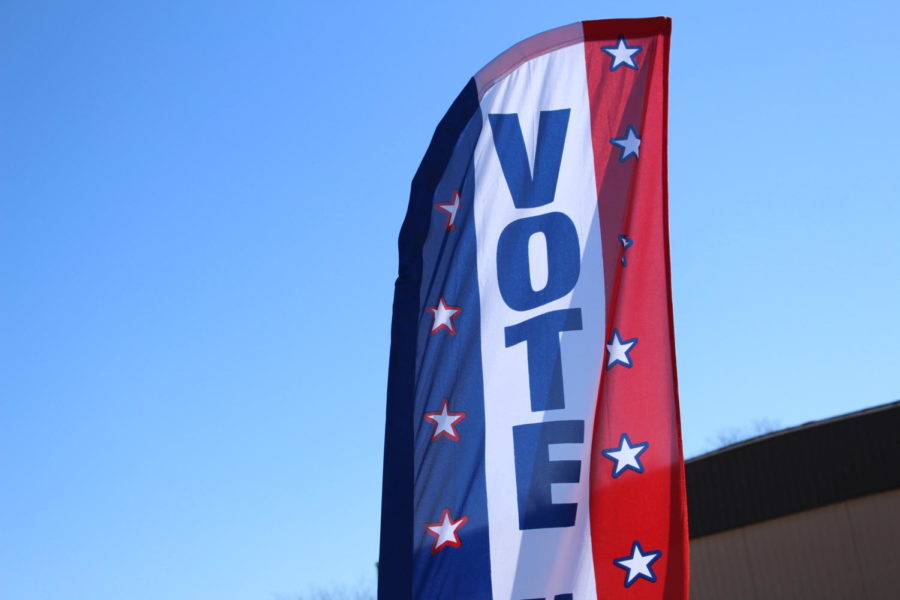Felon voting rights restoration bill moving through Iowa legislature
A “Vote Here” sign waves in the wind at the Ascension Lutheran Church where Ames residents cast their ballot for the 2016 election.
February 27, 2020
With a backlog of more applications to restore voting rights after a felony charge, some Iowa legislators have been saying that enough is enough.
Iowa’s Constitution currently states those convicted of a felony permanently lose their right to run for office or vote. This makes Iowa the last state with a permanent denial of voting rights to felons after Kentucky’s Gov. Andy Beshear signed an executive order in December to restore voting rights to felons in that state.
Gov. Kim Reynolds said she would process the applications for felons that are trying to restore their voting rights before the Iowa caucuses, she eventually restored the voting rights of several hundred Iowans.
Rep. Dave Jacoby, D-Coralville, said it is hard to have a voting impact when this population doesn’t have the right to vote.
“You’re talking about people at least having the power to vote, and hopefully make some changes,” Jacoby said.
Karen Kedrowski, director of the Carrie Chapman Catt Center, said this power of votes may be concerning for some due to the number of those incarcerated that may vote for Democrats.
“They tend to vote Democratic,” Kedrowski said. “One of the things that some people might favor in terms of not reinstating felon voting rights are making it difficult to do so [because they] might not agree with their political choices.”
Jacoby said the current bill isn’t just impacting the political system, but also minority groups.
“I think that it definitely disproportionately affects minorities, all you have to do is look at the prison population compared to the general population of our cities and states and it’s obvious,” Jacoby said.
Kedrowski said any voting regulations such as voter ID laws, shorter or a lack of early voting periods and harder ways of securing absentee ballots also affect populations of color.
“Those are going to disproportionately impact individuals who are poor and have transportation difficulties, disabilities of that nature. And many of those groups will have disproportionately large numbers of elderly communities of color,” Kedrowski said.
When it comes to rehabilitation and the approach back into society, Jacoby said allowing convicted felons the right to vote could help in those processes.
“One of the main things for rehab or being successful is the feeling of connection with the community, along with a job and a family structure, and voting is an important piece of that connection,” Jacoby said.
Kedrowski said when it comes to rehabilitation or giving individuals second chances, the governor has been taking a leadership role.
“I think Gov. Reynolds is exactly right about this, and she’s been very frank about her own history of alcoholism and how she says she believes in redemption,” Kedrowski said. “I commend her for taking leadership on this.”
Kedrowski said she would like to see individuals that have done their time in jail immediately get their right to vote back. She said she wants to see this done through a constitution amendment, more than through legislation.
“They do carry a great more deal of legitimacy, it would be harder to repeal,” Kedrowski said. “Doing this by legislation, only could easily be overturned by another piece of legislation.”
Jacoby said an easy solution to this is to decide on legislation immediately, and to give individuals the right when they receive their release papers.
“The core of the whole discussion is that the governor could make that happen with one swipe of her pen,” Jacoby said. “It could be resolved in a matter of minutes if the governor decided to do so.”







